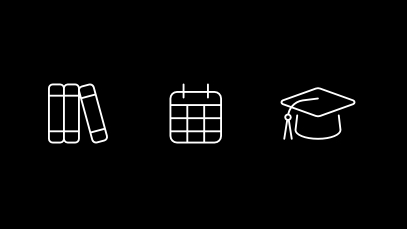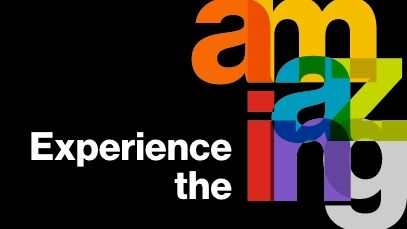What is it like for an American to live and work in Croatia?
What is it like for an American to live and work in Croatia?
An interview with an alum Lehady Sani-Agatha
December 15, 2021
A lot of times when we talk about American education in Croatia, the conversation revolves around Croatian students adjusting to the US higher ed standards and system. However, more and more international students come to study here. Earning an accredited American university degree in a beautiful country like Croatia is appealing to students from all over the world, even from far destinations like Bolivia, or New Zealand!
One of the more common international countries our students come from is, of course, the USA. And this is a story about a remarkable student (now an alum), who is an American War Veteran, a popular DJ and a Chief Operating Officer at Top Digital Agency - Lehady Sani-Agatha.
"I think I wouldn't have accomplished all these points of my life if it wasn't for the order in which it came about", says Lee. "I enlisted in the Air Force when I was 18 years old and spent six years on active duty and then went reservist for two more years and left the military as a sergeant. I started Djing for fun in the late stages of my military career. Lastly, I worked my way up in TDA, the current company I worked for when I entered as an intern coming from RIT. Leadership in the company saw the contribution I made and recognized the leadership skills I accumulated while serving active duty and placed me in the COO/CTO position to help guide the company on the right path."
Living in Croatia: Croatia is an excellent fit for young people
Lee remembers when he first heard about Croatia. "I was stationed in Italy in 2011, and lived around Pordenone in a small town called Sacile. I heard about Croatia after I came back from my second deployment and some of my friends told me how they visited Croatia and how beautiful the country was. So my friends and I left one weekend to Croatia to enjoy the city of Zagreb and went out to party in Jarun at the club called Mansion, which isn't around anymore".
This country is now Lee's second home. "Croatia is an excellent fit for young people, especially before the pandemic, where you could go to many different clubs to hear different types of music. Also to taste food from different parts of the region and of course, young people can have a wonderful time on the coast."
"I feel what's best about Croatia is its richness in its various things, such as historic towns, mountains, landscapes, the Adriatic Sea, waterfalls, and national parks." says Lee. "The one thing I think the country lacks is cultural diversity. But I believe that has gradually changed since I first came here in 2012. The amount of foreign people I've seen in the country is way more common now than back then."
I was able to gain the job I'm currently in because of the Co-op program RIT requires each student to accomplish
Being in Croatia, Lee saw another opportunity - getting his education and an American university degree in Zagreb, at RIT's global campus. "I heard about RIT from my mother-in-law", says Lee "and she told me she heard that there was an American university".
Students at RIT Croatia earn two degrees. An American university degree from RIT, and a Croatian degree from RIT Croatia. Lee earned his BS degree in Web and Mobile Computing program: " I chose to learn to program because I initially got a degree in criminal justice, and I was trying to go for the FBI but was waiting for a long process. So I told myself if I'm going to switch career paths, then I'll go where the future is heading, and that's technology."
When you ask him about his experience at RIT Croatia, he will emphasize two things: relationships with people and the mandatory co-op program. Cooperative education is one of the things RIT is known for. It has fourth-oldest and one of the largest co-op programs in the world. So like in the US, students in Croatia undergo mandatory interships of 800 hours which enables them to get real and meaningful work experience in the field of their study.
"I built a long-term relationship with people," says Lee "and I was able to gain the job I'm currently in because of the co-op program. I would recommend anyone RIT because of the topics students can learn and the work experience you will get participating in the co-op program."
Lee shared some thoughts about being American living and working here. "As for living, this is one of the safest countries I've ever lived, and a beautiful place to enjoy life and raise a family. Plus, if someone in the States wants to live here and work for an outside country, they now have the option to be a digital nomad." When it comes to finding a job, Lee says there still are some obstacles, "but that issue seems to be getting better as more career opportunities grow in Croatia. Also, due to my career as a programmer, I believe it was easier to find a job since the code is in English, but students working in a business program will have to find work that serves a global market."
Future plans - family-life and my own business venture in Croatia
When it comes to Lee's plans, he knows what he wants to do. "I see myself still in Croatia, raising kids with my Croatian wife, running the company, and eventually starting my own business venture. Also still see myself djing on the side since the music will always be one of my happy places."
When he's not working, Lee enjoys a good hike, catching up with friends over drinks, researching current digital trends, watch anime, and playing music. "I started DJing in the military just as a hobby, and it naturally grew from people hearing about my music and asking me to perform at bars. That grew to me djing at bigger venues and then top clubs in Croatia. Before the pandemic, I had residentials at Swanky and Outgarden djing every few weekends."
You can follow Lee on his Instagram: sani.vibe :)
Recommended News
-
November 15, 2024
-
November 5, 2024
-
October 31, 2024
-
October 30, 2024











